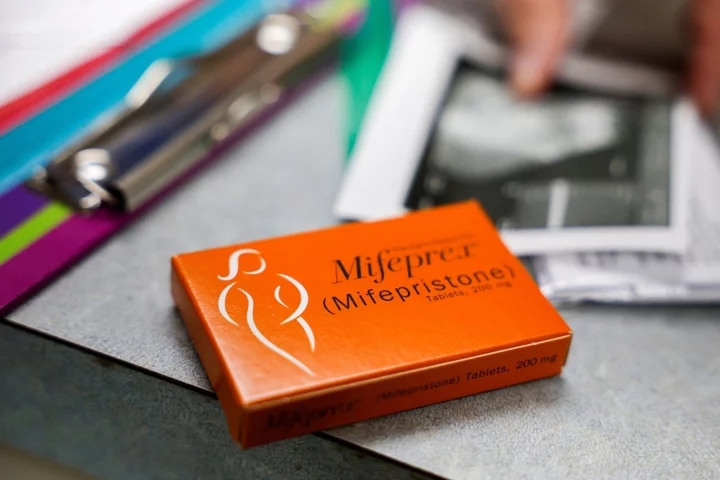Abortion drug case likely headed to Supreme Court after Republican-appointed judges agree to restrict access
A high-stakes lawsuit over the future of a widely used abortion drug is likely heading to the US Supreme Court, set to determine the fate of abortion rights access across the country for a second time within two years. Three Republican-appointed judges on a federal appeals court have determined that the federal government did not follow proper procedures when it amended regulations for a commonly used medication abortion drug in 2016. But the restrictions will not immediately take effect. The panel partially upheld a ruling from a Donald Trump-appointed federal judge in Texas, whose sweeping decision earlier this year threatened to strip access to the drug altogether. Nothing in the ruling from a three-judge panel on 16 August will go into effect until the nation’s highest court weighs in. Wednesday’s ruling argues that the US Food and Drug Administration unlawfully expanded access to mifepristone, which was first approved by the federal government more than 20 years ago. Mifepristone was first approved by the FDA in 2000 and is approved for use up to 10 weeks of pregnancy. A vast majority of abortions occur within the first nine weeks of pregnancy. From 2019 through 2020, nearly 93 per cent of all abortions were performed before the 13th week, according to the US Centers for Disease Control and Prevention. The drug – part of a two-drug protocol for medication abortions, the most common form of abortion care in the US – is the subject of a lawsuit from a group of anti-abortion activists represented by right-wing Christian legal group Alliance Defending Freedom, which joined efforts to overturn Roe v Wade at the Supreme Court last year. In April, US District Judge Matthew Kacsmaryk – a former right-wing activist lawyer who was appointed to the federal judiciary by Mr Trump – issued a ruling to suspend the FDA’s approval, which was immediately challenged by abortion rights advocates, providers, major medical groups, drug manufacturers and President Joe Biden’s administration. An initial ruling at the US Court of Appeals for the Fifth Circuit blocked part of that decision but struck down policies for mail-in prescriptions and rules that expanded the drug’s approval for pregnancies up to 10 weeks. On 21 April, the Supreme Court blocked the lower courts’ rulings from taking effect while the case plays out, retaining the status quo while the legal case plays out. Following the Supreme Court’s conservative supermajority decision to revoke a constitutional right to abortion care in Dobbs v Jackson Women’s Health Organization, at least 15 states – mostly across the US South – have effectively banned most abortions and imposed criminal penalties against providers. Abortion rights advocates and providers have warned that eliminating or restricting access to mifepristone could drastically impact an already-fragile landscape for abortion care. A ruling that undermines the FDA’s drug approval process could also open the door for other activist-driven legal battles over other drugs wrapped up in political debates, potentially inviting other destabilising lawsuits to Covid-19 vaccines, contraception, HIV medication, gender-affirming care, and other life-saving drugs. Read More What is mifepristone? The widely used pill in the abortion rights battle at the Supreme Court Abortion rights advocates win major victory in Ohio as voters reject GOP plan to thwart ballot measure Texas women detailed agonising pregnancies after being denied abortions. The state blames doctors Some abortion drug restrictions upheld by in a case bound for Supreme Court Akram criticizes Pakistan Cricket Board for leaving Imran Khan out of Independence Day video Netanyahu voices support for Israel's military after his allies and son lambaste security officials
A high-stakes lawsuit over the future of a widely used abortion drug is likely heading to the US Supreme Court, set to determine the fate of abortion rights access across the country for a second time within two years.
Three Republican-appointed judges on a federal appeals court have determined that the federal government did not follow proper procedures when it amended regulations for a commonly used medication abortion drug in 2016. But the restrictions will not immediately take effect.
The panel partially upheld a ruling from a Donald Trump-appointed federal judge in Texas, whose sweeping decision earlier this year threatened to strip access to the drug altogether. Nothing in the ruling from a three-judge panel on 16 August will go into effect until the nation’s highest court weighs in.
Wednesday’s ruling argues that the US Food and Drug Administration unlawfully expanded access to mifepristone, which was first approved by the federal government more than 20 years ago.
Mifepristone was first approved by the FDA in 2000 and is approved for use up to 10 weeks of pregnancy. A vast majority of abortions occur within the first nine weeks of pregnancy. From 2019 through 2020, nearly 93 per cent of all abortions were performed before the 13th week, according to the US Centers for Disease Control and Prevention.
The drug – part of a two-drug protocol for medication abortions, the most common form of abortion care in the US – is the subject of a lawsuit from a group of anti-abortion activists represented by right-wing Christian legal group Alliance Defending Freedom, which joined efforts to overturn Roe v Wade at the Supreme Court last year.
In April, US District Judge Matthew Kacsmaryk – a former right-wing activist lawyer who was appointed to the federal judiciary by Mr Trump – issued a ruling to suspend the FDA’s approval, which was immediately challenged by abortion rights advocates, providers, major medical groups, drug manufacturers and President Joe Biden’s administration.
An initial ruling at the US Court of Appeals for the Fifth Circuit blocked part of that decision but struck down policies for mail-in prescriptions and rules that expanded the drug’s approval for pregnancies up to 10 weeks.
On 21 April, the Supreme Court blocked the lower courts’ rulings from taking effect while the case plays out, retaining the status quo while the legal case plays out.
Following the Supreme Court’s conservative supermajority decision to revoke a constitutional right to abortion care in Dobbs v Jackson Women’s Health Organization, at least 15 states – mostly across the US South – have effectively banned most abortions and imposed criminal penalties against providers.
Abortion rights advocates and providers have warned that eliminating or restricting access to mifepristone could drastically impact an already-fragile landscape for abortion care.
A ruling that undermines the FDA’s drug approval process could also open the door for other activist-driven legal battles over other drugs wrapped up in political debates, potentially inviting other destabilising lawsuits to Covid-19 vaccines, contraception, HIV medication, gender-affirming care, and other life-saving drugs.
Read More
What is mifepristone? The widely used pill in the abortion rights battle at the Supreme Court
Abortion rights advocates win major victory in Ohio as voters reject GOP plan to thwart ballot measure
Texas women detailed agonising pregnancies after being denied abortions. The state blames doctors
Some abortion drug restrictions upheld by in a case bound for Supreme Court
Akram criticizes Pakistan Cricket Board for leaving Imran Khan out of Independence Day video
Netanyahu voices support for Israel's military after his allies and son lambaste security officials









